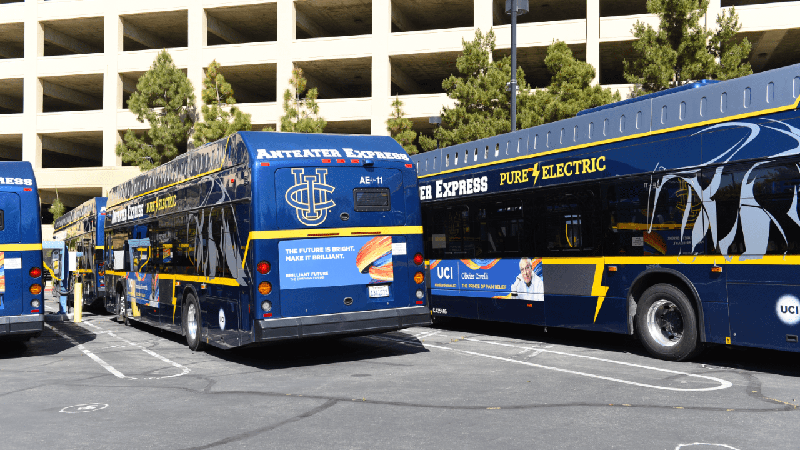
Photo by Steve Cukrov, Shutterstock
By ANDREW DARRELL, Special to CalMatters
Fully funding Senate Bill 372 will enable California to clean up our roads and communities and fight climate change, all while delivering the right kind of help to each fleet.
The Legislature voted last year to accelerate the transition of medium- and heavy-duty vehicles to zero-emission by establishing the bipartisan SB 372, a public financing program specifically designed to overcome barriers to scale. Now, the Legislature needs to take one more step: It must earmark $60 million in the state budget to launch the bill.
Putting more electric trucks and buses on California roads will improve air quality and grow local jobs. For many fleets, however, the transition to electric will require innovative policy and finance solutions to get the job done on pace with climate targets.
There is a gap between the fleets prepared to deploy electric vehicles and the capital needed to finance the transition, because the first is outgrowing the second. Fleets and financiers still face considerations such as higher upfront vehicle costs (generally offset by lower operating costs over time), the need to make one-time investments in charging infrastructure, and uncertainties about residual value (which will begin to resolve as the market grows). These barriers can seem especially daunting for operators of smaller fleets without ready access to capital or expertise to manage the transition. By addressing these barriers, the state can resolve them more quickly.
Read more of “State needs to kick-start funding for electric truck and bus fleet programs” on CalMatters.
Andrew Darrell is senior advisor of global finance for the Environmental Defense Fund.
Articles which extol the virtues of a report or article put out by a local newsroom.